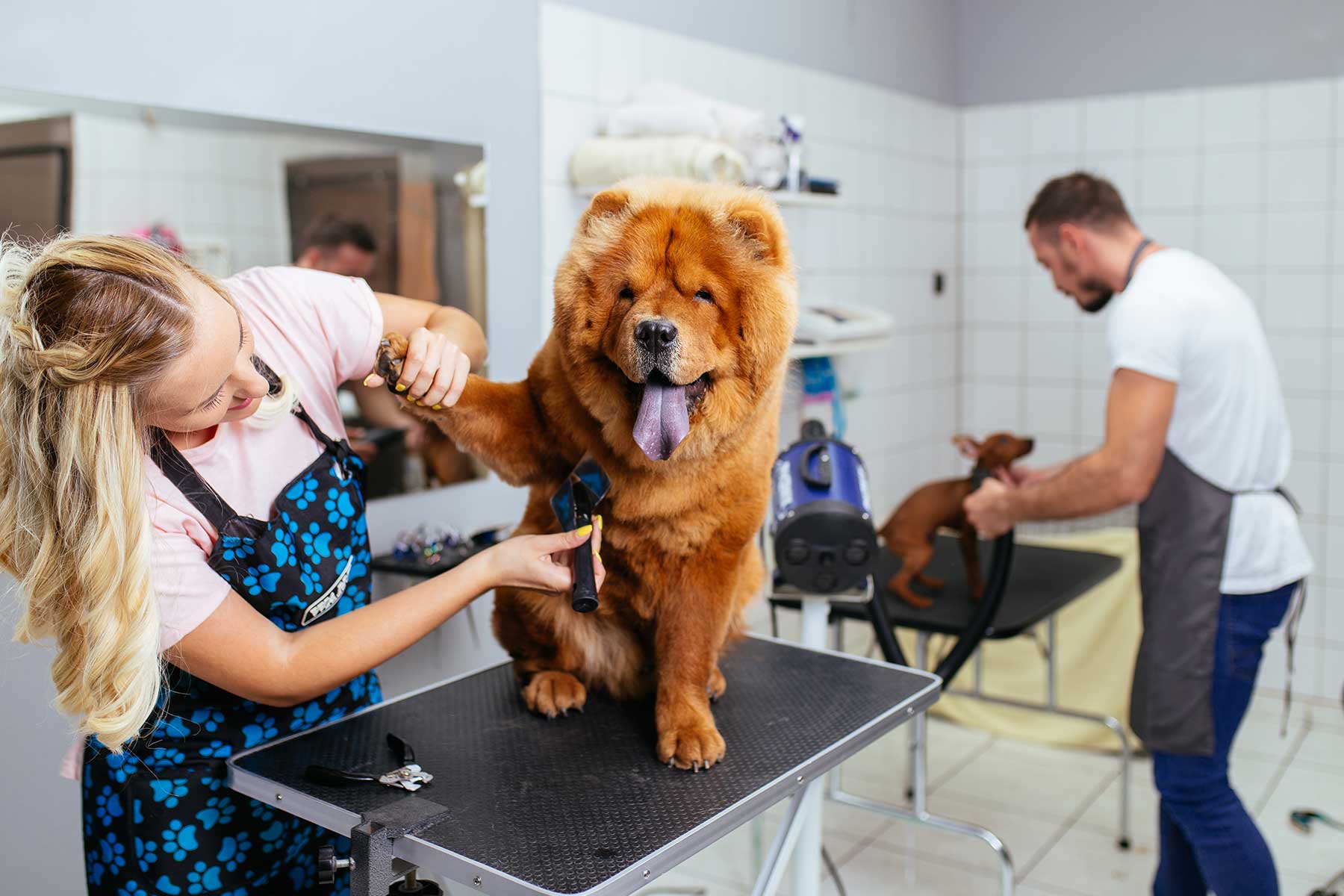Maintaining healthy skin and coat is an extremely important part of your dog’s overall health. One of the first signs of poor health in a dog is usually a sad looking coat. Depending on the breed of dog you own, their grooming regimen will vary, but it can be simple to maintain. To keep your dog happy and healthy and their coat in optimal condition, just follow these five steps.
- Nutrition
Like us, nutrition is a very important part of keeping our body healthy. The same goes for our dogs. Look for foods that are high in protein and essential fatty acids, the more nutrient dense your dog’s food is, the healthier your dog will be, leading to a beautiful coat as well. Your vet can help if you need any advice on which dog food would suit your furry friends needs best. - Regular grooming
There is a variety of grooming options that can be considered. You may choose to use a private pet groomer, veterinarian or do the work yourself, any of these options are suitable. Any good groomer will be trained to understand the needs of your dog and their breed. They should also perform a full service, cleaning your dog’s ears and cutting their nails. When you groom your dog yourself, always comb your dog before bathing them regardless of the length of their coat. Doing this will remove any dead surface hair.Grooming guide
Long haired breeds – twice a week (at least)
Breeds with thick undercoats – once a week
Short haired breeds – regularly to remove loose hair - Give them a doggy bath
Bathing eliminates the build-up of bacteria and oil on a dog’s coat, this build up is what causes that doggy smell. Baths are great for keeping your dog’s coat healthy and clean, but be careful not to ‘over bath’ your pooch. Try not to bathe your dog more than once a month, this can lead to dry skin that can become itchy and irritated. It is important to only use shampoo specially formulated for dogs. Your veterinary clinic can recommend the best options available. - Perform health checks regularly
Parasites can cause your dog’s coat to lose its quality. Make sure to check your pup for parasites such as worms, fleas and ticks on a regular basis. These nasty parasites can also irritate your dog’s skin and cause them to itch excessively. As well as checking for parasites, you should have your dog on a parasite prevention program. - Keep track of your dog’s health needs
Visit your veterinarian regularly, to keep track of your dog’s health needs. A lot of the time, a dull and thinning coat can be a sign of another health problem with your dog. If you are concerned this is the case, it is best to speak to your vet about this.
If you ever need any tips on keeping your dog’s coat healthy and luscious, don’t hesitate to ask your local veterinarian.


